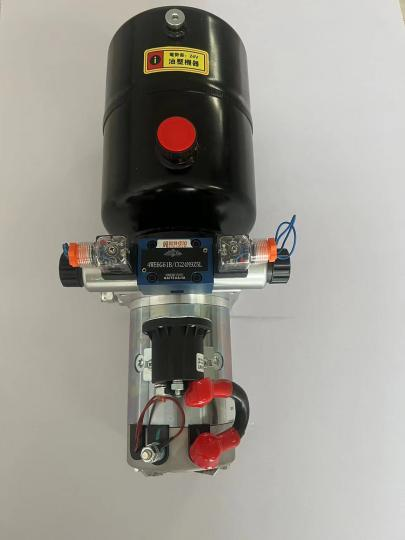Aug . 15, 2024 17:24 Back to list
Hydraulic Cylinder Manufacturer for Tractor Top Link Systems and Agricultural Machinery Solutions
Hydraulic Cylinders for Tractor Top Links A Deep Dive into Manufacturing
Hydraulic systems have become indispensable in modern agricultural machinery, enhancing efficiency and precision. One of the critical components in these systems is the hydraulic cylinder, particularly those used in tractor top links. The factory that specializes in the manufacturing of these hydraulic cylinders plays a vital role in ensuring that tractors perform optimally in various agricultural tasks.
Understanding the Function of Top Link Hydraulic Cylinders
The top link of a tractor is an essential part of the three-point hitch system, which connects implements to the tractor. The top link hydraulic cylinder allows for the adjustment of the link's length, enabling the operator to control the angle and height of the implement. This adjustability is crucial for effective operation, lending the tractor the capability to adapt to different terrains and tasks, such as plowing, tilling, and hauling.
Design and Manufacturing Process
The design of hydraulic cylinders for top links involves a careful balance between strength and weight. The factory must ensure that each cylinder can withstand the pressures of hydraulic fluid while being light enough to not hinder the tractor's performance. The materials typically used include high-strength steel and aluminum, which provide durability without excessive weight.
The manufacturing process begins with precision engineering. Using Computer-Aided Design (CAD) software, engineers create detailed specifications and simulations. This digital modeling allows for the meticulous examination of stress points and overall functionality. Once the designs are approved, the manufacturing begins, which includes processes such as cutting, welding, machining, and assembly.
Quality control is a paramount concern in this manufacturing process. Each hydraulic cylinder undergoes rigorous testing to ensure it meets the required safety and performance standards. This includes pressure tests, functional tests, and inspections for any defects. The aim is to provide farmers and agricultural businesses with reliable, high-performing products that enhance productivity.
tractor top link hydraulic cylinder factory

Innovations in Hydraulic Technology
Innovations in hydraulic technology are continually evolving, providing manufacturers with new opportunities to improve their products. For instance, the advent of smart technology allows for the integration of sensors within hydraulic cylinders, enabling real-time monitoring of performance metrics. This technology can help prevent failures by alerting operators when maintenance is needed or when the cylinder is under undue stress.
Moreover, environmentally friendly practices are becoming more critical in the manufacturing processes. Factories are increasingly adopting sustainable practices, such as recycling materials, reducing waste, and using eco-friendly hydraulic fluids. This commitment to sustainability not only benefits the environment but also appeals to a growing segment of environmentally conscious consumers.
The Impact on Farmers and Agriculture
The significance of high-quality hydraulic cylinders in agricultural machinery cannot be overstated. A reliable top link hydraulic cylinder can dramatically enhance a tractor's versatility and efficiency, enabling farmers to complete tasks more quickly and effectively. This efficiency translates to higher productivity, reduced fuel consumption, and ultimately greater profitability for agricultural businesses.
Moreover, the advancements in hydraulic technology contribute to better soil management and crop yields. As farmers can make precise adjustments to their implements, they can work the land with minimal disturbance, preserving soil health and structure. This precision also allows for more effective implementation of sustainable farming practices.
Conclusion
The factory dedicated to the production of tractor top link hydraulic cylinders is a crucial player in the agricultural sector. By focusing on quality, innovation, and sustainability, these manufacturers not only support the efficiency of farming operations but also contribute to the evolution of agriculture in the face of modern challenges. With continued advancements in technology and engineering, the future of tractor hydraulics looks promising, paving the way for a more productive and sustainable agricultural landscape.
-
1.5 Ton Flipping Oil Cylinder 70/82-40-217-720-Hebei Shenghan Hydraulic Machinery|Precision Hydraulic Cylinder,Custom Hydraulic Solutions
NewsAug.29,2025
-
1.5 Ton Flipping Oil Cylinder 70/82-40-217-720 | Hebei Shenghan Hydraulic Machinery Co., Ltd.
NewsAug.29,2025
-
High-Precision [90/105-50-180-480] Industrial Component | Durable & Reliable
NewsAug.27,2025
-
High-Performance Set of 50/60-45-290 471 | Durable & Reliable Components
NewsAug.26,2025
-
Efficient Pallet Truck Power Units - Reliable Hydraulic Systems
NewsAug.25,2025
-
Premium Set of 50/60-45-290 471 Parts | High Performance
NewsAug.24,2025
